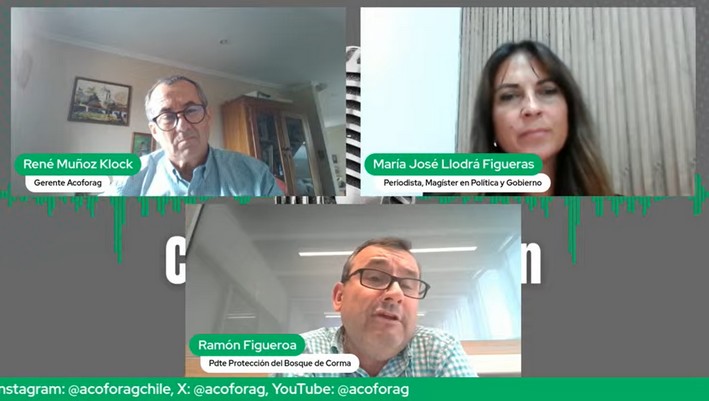The wildfire crisis in the La Araucanía Region has reignited the debate about the influence of politics on technical decisions that affect safety and the environment.
In "Conversando con la Acoforag," Ramón Figueroa, Deputy Manager of Forest Fire Protection at Empresas Arauco and President of the Forest Protection Department at Corma, criticized the decision-making process regarding burn authorizations in the region. From his perspective, technical considerations are increasingly overshadowed by political ones, leading to flawed decisions with severe consequences.
The expert stated that the National Forestry Corporation (CONAF) is aware of the risks posed by certain weather conditions, such as the "puelche wind," for conducting controlled burns. However, he noted that these decisions are subject to political pressures that ultimately override technical logic. "They could have waited two or three days to carry out these burns and avoided a catastrophe," he said, referring to the large number of active wildfires now affecting the region.
The Impact on La Araucanía and Comparisons with Biobío
The numbers highlight the severity of the problem. "In Chile, an average of 150,000 hectares burn per season, with between 6,000 and 7,000 fires annually. Of those hectares, 50,000 correspond to La Araucanía and 45,000 to Biobío. However, wildfire management in Biobío has significantly improved in recent years, thanks to a public-private partnership that has cut the number of fires in half and reduced damage to just 5% of what it used to be," Figueroa emphasized.
In contrast, the problem continues to grow in La Araucanía. "This season, over 60,000 hectares have already burned in Chile, of which 33,000 belong to La Araucanía—more than 50% of the national total. If this trend continues, estimates suggest it could reach 80,000 hectares, surpassing last season's 72,000," he detailed.
An Economic and Social Problem
Beyond the environmental impact, the wildfire crisis is severely affecting the regional economy. According to Figueroa, "La Araucanía is disappearing economically." Recurring fires not only destroy the forestry sector but also agriculture and other productive activities, leaving many communities without the resources to recover.
He also called for improved prevention practices, such as reducing dry fuels that facilitate fire spread. In other countries, like the U.S. and Europe, controlled burns are conducted under strict safety conditions to prevent the accumulation of flammable material. However, in Chile, the lack of effective oversight and flawed decisions have worsened the problem.
The wildfire situation in La Araucanía reflects a structural issue in decision-making. While collaboration between the public and private sectors in Biobío has significantly reduced fires, in La Araucanía, politics continues to override technical considerations, with devastating results. Unless structural changes are made in wildfire management and technical criteria are prioritized over political interests, the crisis could worsen, affecting not only ecosystems but also the region's economy and well-being.
The full interview is available on Acoforag's YouTube channel:







Comentarios (0)
No hay comentarios aún. ¡Sé el primero en comentar!
Deja un comentario